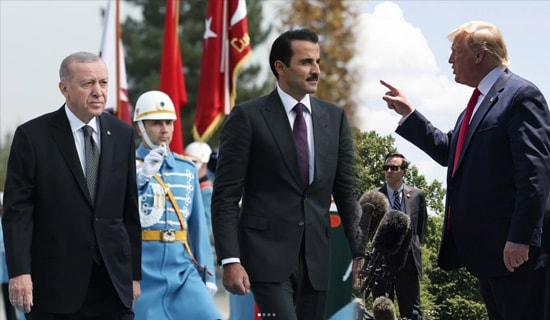On December 9-10, 2009, the Saudi daily 'Okaz published an interview with Saudi sheikh Dr. Ahmad bin Qasim Al-Ghamdi head of the Commission for the Promotion of Virtue and Prevention of Vice in the Mecca area, in which he discourses on the issue of ikhtilat (the mixing of men and women), and rejects the claim that this is forbidden in Islam. Al-Ghamdi's extensive discussion of this matter comes in response to criticism over the opening of Saudi Arabia's first co-ed university, the King Abdullah University for Sciences and Technology (KAUST). He states that the opening of this university is a huge achievement, and that whoever criticizes it for being co-ed has failed to understand the teachings of Islam on this matter.
Following are the main points from the interview:[1]
Islamic Law Does Not Forbid Ikhtilat
Al-Ghamdi states that the issue of ikhtilat was never discussed by the religious scholars of the early Islamic era, nor were any religious rulings issued on this matter. Rather, the mixing of the genders was seen by the Muslims as natural: "The mixing of men and women was not at all forbidden by religious law. Rather, it was the normal practice during the time of the Companions of the Prophet Muhammad."
Next, Al-Ghamdi criticizes those who speak out against ikhtilat while applying a different standard in their own homes: "[The mixing of the sexes] is an inescapable part of our daily lives. It happens in the homes of many Muslims – including those who denounce ikhtilat – where you find women servants working next to men who are not related to them. This is a clear example of men and women mixing in our daily lives, which cannot be denied. To publicly denounce ikhtilat while practicing it in one's [daily] life is a contradiction that Islamic law defines as reprehensible. All fair-minded and sane Muslims should adhere to the rules of Islamic law, without any additions or omissions"…
Emphasizing that religious rulings should be based on clear evidence from authoritative Islamic sources, Dr. Al-Ghamdi cites a number of hadiths (prophetic traditions) supporting his position: "Sawda [the second wife of the Prophet Muhammad] went out one evening after [Muhammad's wives] had been ordered to wear a hijab. She was a tall woman of heavy build. Omar met her by chance and called out to her: 'Oh, Sawda! By Allah, you are not unseen by us. When you go out, you should watch how you [look] and how you behave.' So she retraced her steps and returned to the Prophet, who was having dinner. [When] she informed him of what Omar had said to her, [the Prophet] replied: 'You [the wives of the Prophet] are permitted to go out for your purposes'." Al-Ghamdi points out that this hadith is included in Bukhari and Muslim, the two most authoritative hadith compilations. "This means that [even] the wives of the Prophet were allowed to go out for their purposes, so it is certainly allowed to other women," he states.
Another hadith is the one about Umm Usayd: "When Abu Usayd Al-Sa'idi was married, he invited the Prophet and his Companions [to the celebration]. The one who prepared the food for them and served them was no other than [Abu Usayd's] wife, Umm Usayd… This necessarily implies that the wife looked at the men and mingled with them..." Finally, Al-Ghamdi describes a hadith about a woman who was not a relative of the Prophet Muhammad, but who on some occasions stood next to him as she was washing her hands before prayer, so that the two used the same water jar and their hands touched. A similar account was given by ibn Omar,[2] who said that during the time of the Prophet, men and women used to wash together in preparation for prayer. These accounts, Al-Ghamdi concludes, indicate that mixing is not forbidden.
If There Is No Ruling Regarding an Action – It Is Permissible
Elaborating on his point, Al-Ghamdi asserts that clear and explicit texts (from the traditions of the Prophet) indicate that men and women may look at each other as long as there is no intention of seduction. They also indicate that men and women may mix in the marketplace for the purpose of legitimate commercial activity, at the workplace, in institutions of education and learning, at the mosque, in the street, etc., because no authoritative text prohibits any of the above. "The legal principle is as follows," he says. "If there is no ruling governing a certain action – then this action is permissible." Al-Ghamdi further explains that the prophetic traditions about modesty – which require women and men to lower their gaze, to be chaste and to steer clear of temptation – do not contradict his claims, because mingling in itself does not necessarily imply illicit talk or actions.
Finally, Al-Ghamdi refers to the criticism published on the internet against KAUST university. He describes the critics as over-rigid and accuses them of doctoring photographs in order to present fake evidence of promiscuity at the campus, emphasizing that KAUST is solidly grounded in the Islamic values of the Saudi Kingdom.
[1]'Okaz (Saudi Arabia), December 9 and 10, 2009.
[2] 'Abdallah ibn Omar was the son of the second caliph and a prominent authority on hadith.




.jpg)